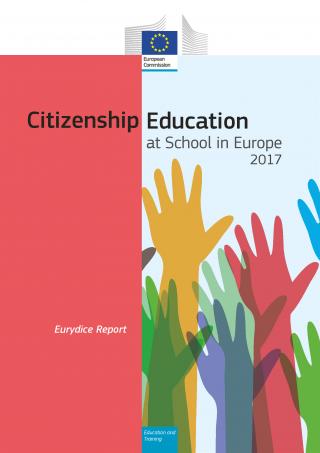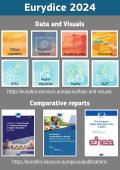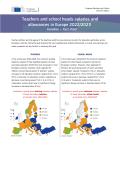Citizenship Education at School in Europe – 2017
Full version BG BS DEEN ES FR HR IT LV PL PT RO SLA SR TR
Highlights BS CS DE EN ES FI FR HR IT LV MK MT NL PL PT RO SK SL SLA SRTR
Eurydice Brief BG CS DE EL EN ESFR HR IT LT LV MK PL PT RO SK SLA SR TR
European Commission Press Release
There has been a strong focus in recent years on the promotion of citizenship education, as a result of the increasing threats to fundamental values such as peace, equality and human rights Europe is faced with, and several countries are making changes to their policies in this area. But what is citizenship education? How is it taught? How are students evaluated? Can citizenship skills be developed outside the classroom? What training and support do teachers receive?
The report is divided into four chapters, each of which is complemented by a case study on recent policy initiatives:
- Curriculum Organisation and Content
- Teaching, Learning and Active Participation
- Student Assessment and School Evaluation
- Teacher Education, Professional Development and Support
The report is primarily based on qualitative data, and covers 42 education systems. It focuses on the existing regulations and recommendations regarding citizenship education in public sector schools and includes general education and school-based initial vocational education training programmes.
For more information on citizenship education in Europe and beyond see also the International Civic and Citizenship Education Study 2016, the largest empirical study of its kind in the world, which monitors 94.000 students' civic knowledge, attitudes and engagement in 24 countries.





